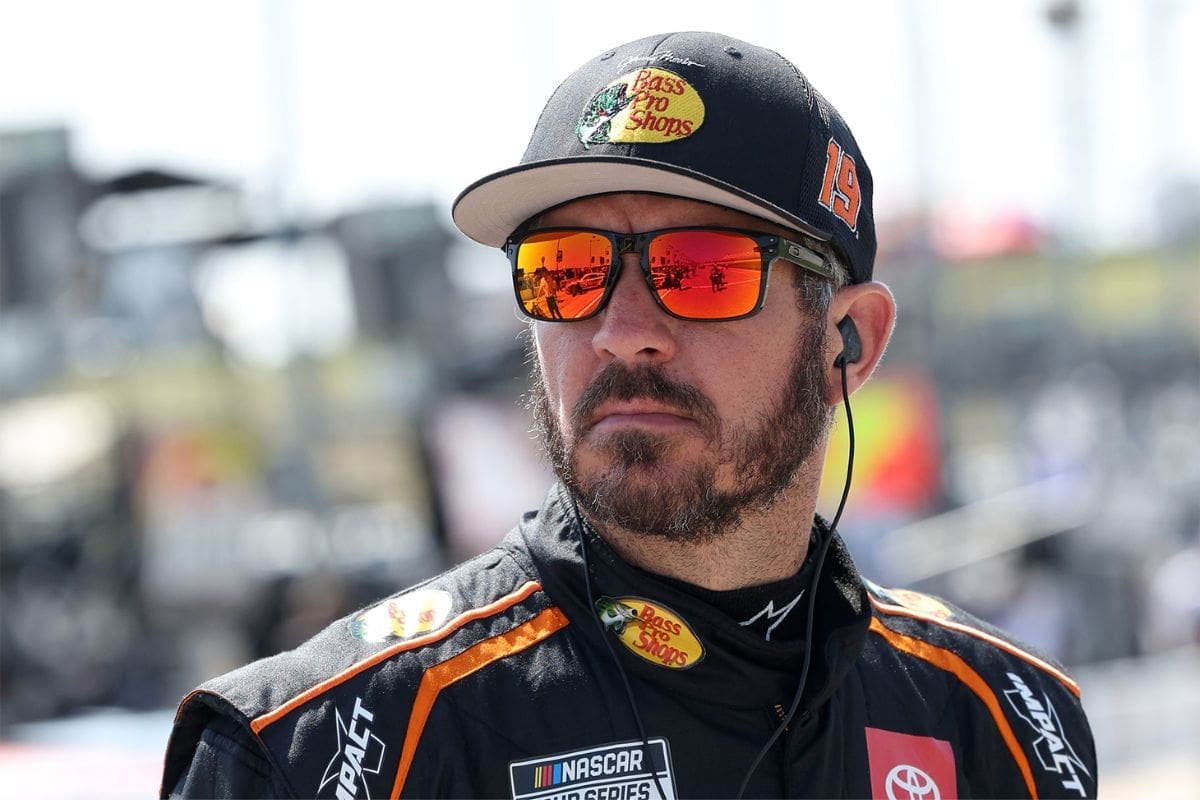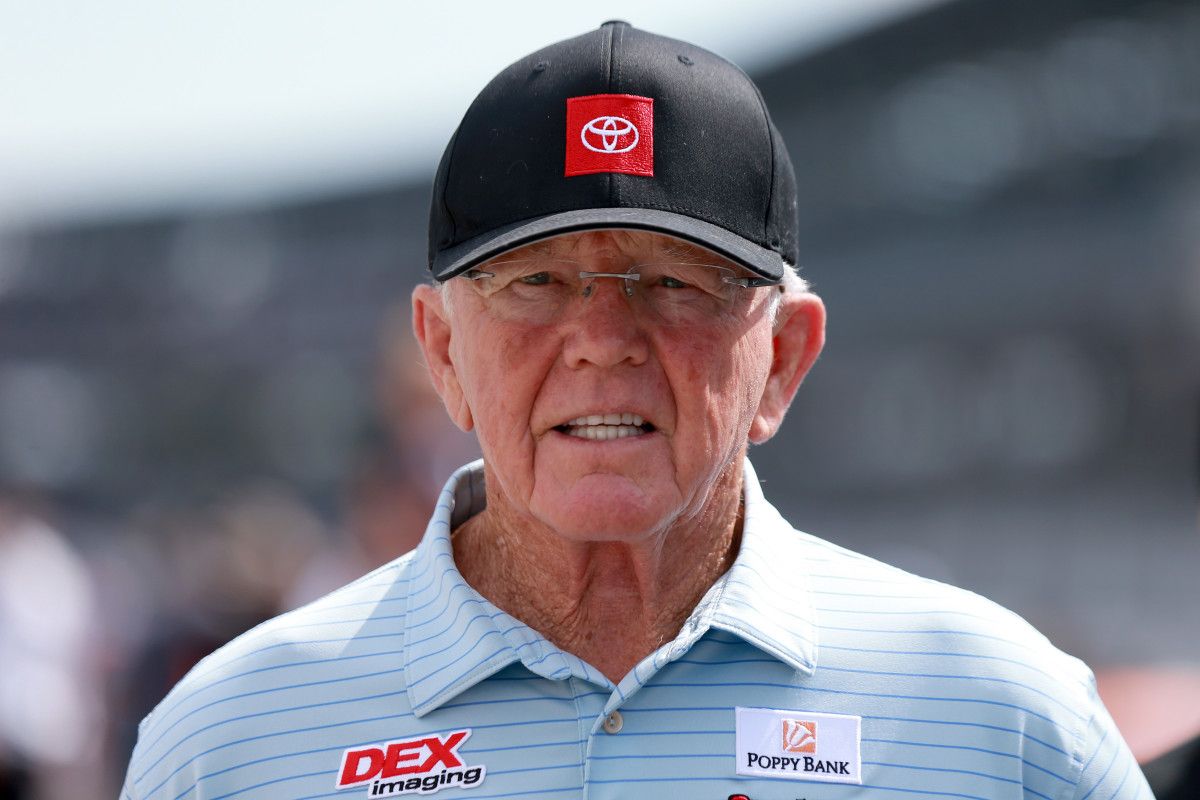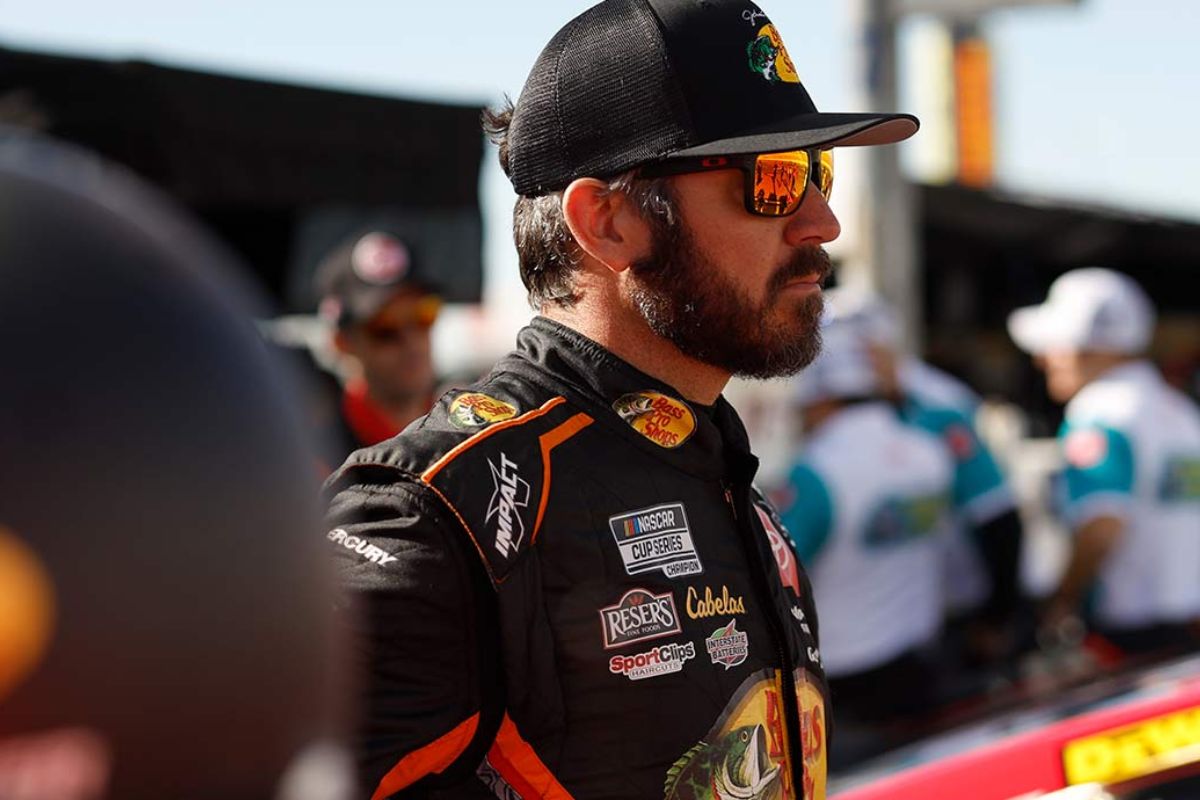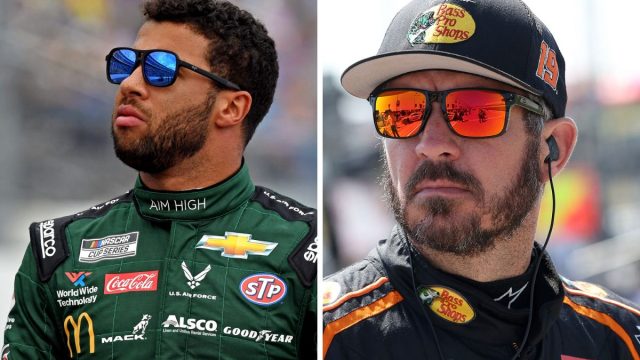Freddie Kraft’s Apology to Truex Jr. : Freddie Kraft’s recent expression of remorse towards Martin Truex Jr. following the Richmond incident has brought to the fore the crucial role of sportsmanship in NASCAR’s competitive landscape. By publicly acknowledging his misstep, Kraft not only highlighted the significance of accountability within the racing community but also opened a dialogue on the ethical dimensions of competition. This moment of candor from Kraft serves as a reflective lens on the broader implications of actions taken in the heat of the moment, inviting further exploration into how such gestures of accountability influence the fabric of sportsmanship and camaraderie in high-stakes environments like NASCAR.
Key Takeaways
- Freddie Kraft, Bubba Wallace’s spotter, publicly apologized for the racing incident affecting Martin Truex Jr.’s performance.
- Kraft’s apology highlighted sportsmanship and accountability within the NASCAR community.
- The apology was a response to an altercation involving Wallace and Kyle Larson that indirectly impacted Truex Jr.
- Kraft’s regret was aimed at acknowledging the unintended consequences of the on-track incident.
- The apology underscored the interconnectedness of team actions in NASCAR and the importance of spotters in race strategy and safety.
Martin Truex Jr.’s Richmond Heartbreak
The final laps dashed Martin Truex Jr.’s hopes for victory at Richmond, marking a significant chapter in the seasoned driver’s career. Dominating the race and leading for more than half of the 400 laps, Truex was on the cusp of clinching a win that had eluded him throughout the season. His performance at Richmond was a demonstration of his skill, experience, and the strategic acumen of his Joe Gibbs Racing (JGR) team. This race was not just another entry in the season’s calendar; it was a light of hope for Truex and his team, a potential turning point to reverse their fortunes and kickstart a series of successful runs.
However, the unforeseen intervention by 23XI’s No. 23 threw a significant obstacle in Truex’s path to victory. This moment highlights the unpredictable nature of motorsport, where despite a driver’s dominance, external factors can abruptly alter the course of the event. It emphasizes the fragility of success in racing, where victory is not solely contingent on a driver’s or team’s prowess but can be influenced by the actions of competitors.
This incident at Richmond adds a layer of complexity to Truex’s season, compelling a reassessment of strategies and perhaps fostering a more resilient approach to future races. It serves as a stark reminder of the challenges inherent in motorsport, where triumph and disappointment are closely intertwined and even the most seasoned professionals are not immune to the whims of fate.

Bubba Wallace’s Role in Truex’s Misfortune
In the complex dynamics of racing at Richmond, Bubba Wallace’s altercation with Kyle Larson on lap 398 emerged as a pivotal moment, indirectly thwarting Truex Jr.’s bid for victory. The incident, a high-stakes duel for the 4th position, saw Wallace and Larson aggressively vying for superiority. Wallace’s move, however, resulted in direct contact with Larson, sending the latter spinning and initiating a consequential trail of smoke. This not only disrupted the race flow but also had a notable impact on Martin Truex Jr.’s strategy and positioning, putting a dent in his aspirations for a win.
The aftermath of the altercation was immediate and multifaceted. The smoke from Larson’s spin contributed to a visual impairment on the track, altering the competitive landscape for the drivers, including Truex Jr. This sequence of events highlights the interconnectedness of actions and consequences in NASCAR racing, where a single incident can set off a domino effect impacting various competitors in unforeseen ways.
Wallace’s spotter, bearing witness to the incident’s ramifications, expressed a deep sense of regret, acknowledging the unintended consequences of the aggressive racing move. This apology highlights the sportsmanship and mutual respect that underpin the competitive spirit of NASCAR, even amidst the fierce battles on the track.
Analyzing Wallace’s role in Truex Jr.’s misfortune reveals the complex interplay of strategy, skill, and sometimes unfortunate timing that defines the essence of motor racing. It serves as a reminder of the razor-thin margins between triumph and disappointment in the high-octane world of NASCAR.
The admission of guilt by #23 spotter Freddie Kraft has sparked a notable reaction within the NASCAR community, underscoring the significance of accountability in professional racing. Kraft’s acknowledgment of his role in the unfortunate events that befell Martin Truex Jr. has not only highlighted the crucial relationship between drivers and their spotters but also brought to light the broader implications of such interactions on the outcomes of races. Kraft’s candid expression of regret, coupled with his validation of Truex’s emotions, reflects a mature approach to mistake acknowledgment within the high-stakes environment of NASCAR.
Sorry 🤷🏻♂️ https://t.co/T5lHjUjbH5
— Freddie Kraft (@FreddieKraft) April 3, 2024
Brett Griffin’s pointed analysis of the situation adds another layer to the community’s response, emphasizing the gravity of the errors made and their impact on the team’s performance. Griffin’s critique, while blunt, serves as a reminder of the high expectations placed on individuals in significant roles such as that of a spotter. The specificity of Griffin’s comments, highlighting the three significant errors, underlines the multifaceted nature of racing where strategic decisions can have far-reaching consequences.
He had three things go really really wrong. You know, Bubba wrecked Larson. Martin Truex didn’t win the pit scenario. Martin Truex didn’t win the restart scenario. Martin Truex didn’t win any scenario that helped him win the race at the end after leading over 100 laps…So I think all those things just add to Martin’s fire of why he was so upset. I mean, he was deservingly going to win the race until you wrecked Kyle Larson.” – (Brett Griffin)
The community’s reaction to Kraft’s apology and Griffin’s analysis showcases a culture of accountability that pervades NASCAR. This culture not only demands excellence in performance but also acknowledges human fallibility, fostering an environment where learning from mistakes is as valued as achieving success. The incident has prompted a reflective dialogue among stakeholders, with a consensus emerging on the importance of transparent communication and the continuous pursuit of mastery in the dynamic and often unpredictable world of professional racing.
Joe Gibbs’ Empathy for Truex’s Struggles
Reflecting on the challenges faced by Martin Truex Jr., team owner Joe Gibbs expressed a deep understanding and empathy towards the series of unfortunate events that impacted his driver’s performance. Gibbs, a seasoned figure in NASCAR, has seen his fair share of racing ups and downs, but the sequence of setbacks for Truex struck a chord. The NASCAR community has long recognized Truex Jr.’s dedication and talent, both of which were evident in his recent races, yet external factors played a significant role in derailing his efforts.
Hamlin’s super-fast pit work and a controversial restart were crucial moments that sealed the fate of Truex’s campaign. These incidents highlight the unpredictable nature of motorsport, where not everything is within the control of the driver or the team. Joe Gibbs’ empathy arises from his nuanced understanding of these dynamics and his genuine acknowledgment that circumstances beyond his control overshadow Truex’s hard work.

Key points of Gibbs’ empathetic stance include:
- Recognition of Truex Jr.’s Skills: Acknowledging the driver’s undeniable talent and hard work.
- Understanding of Motorsport’s Unpredictability: Accepting that some factors cannot be controlled.
- Acknowledgment of External Factors: Realizing the impact of Hamlin’s pit work and the restart on Truex’s race.
- Support for Truex Jr.: Offering moral and professional support in the face of adversity.
Gibbs’ empathetic approach not only demonstrates leadership but also highlights the team-oriented nature of NASCAR, where support and understanding within a team can be as critical as the performance on the track.
Truex’s Resilience and Support
Amid the challenges and controversies, Martin Truex Jr.’s resilience emerges as a proof of his strength and the unwavering support he receives from the NASCAR community. His position at the pinnacle of the NASCAR rankings, despite the adversities faced, is a demonstration of his skill and determination. The incident involving Hamlin’s borderline illegal tactics and Truex’s subsequent reaction has sparked considerable debate within the racing world. However, the response from Joe Gibbs, contrasting sharply with the possibility of a penalty, highlights the complex dynamics within teams and the broader NASCAR fraternity.
The support for Truex Jr., particularly in the wake of Freddie Kraft’s apology, highlights not just the individual’s resilience but also the collective ethos of the NASCAR community. It’s a narrative of redemption, camaraderie, and mutual respect that transcends the heat of competition.
In analyzing Truex Jr.’s journey, it becomes evident that resilience, bolstered by a supportive community, forms the cornerstone of his success. His ability to navigate through controversies, coupled with the backing of key figures like Joe Gibbs, paints a picture of a seasoned competitor who thrives amidst adversity.

News in Brief
The incident involving Freddie Kraft’s apology to Martin Truex Jr. serves as a poignant reminder of the significance of sportsmanship and accountability within NASCAR.
This event not only highlighted the intricate dynamics of racing, where actions have profound impacts on outcomes, but also emphasized the community’s capacity for growth through reflection and acknowledgment of mistakes.
It reinforces the idea that continuous improvement and empathy are crucial for fostering a competitive yet respectful environment in the world of professional racing.
Our Reader’s Queries
Q: Who does Freddie Kraft spot for in the truck series?
A: In addition to my role as a spotter for Landon Cassill in the Kaulig Racing #10 in the NASCAR Xfinity Series and Derek Kraus in the BMR #19 truck in the Camping World Truck Series, I co-host the Door Bumper Clear podcast every Monday on DirtyMo Media.
Q: Who is Bubba Wallace’s spotter?
A: 23XI Racing driver Bubba Wallace recently commended his spotter, Freddie Kraft, for his invaluable inputs during the NASCAR Cup Series races.
Also Read: Martin Truex Jr. Rages Against Hamlin’s Tactics: Post-Race Outburst!
Stay in the fast lane with the freshest NASCAR news and updates on global motorsports racing. Make Slicks And Sticks your pit stop for premier racing sports news.
Top Drivers
- Denny Hamlin
- Kyle Larson
- Dale Earnhardt Jr
- Kyle Busch
- Joey Logano
- Chase Elliott
- Ryan Blaney
- Kevin Harvick
- Bubba Wallace
- Christopher Bell
- Shane van Gisbergen
- William Byron
- Brad Keselowski
- Joe Gibbs
- Ross Chastain
- Tyler Reddick
- Connor Zilisch
- Chase Briscoe
- Jimmie Johnson
- Alex Bowman
- Carson Hocevar
- Tony Stewart
- Richard Childress
- Daniel Suarez
- Martin Truex Jr
Top Teams
Copyright © 2025 Slicks And Sticks
